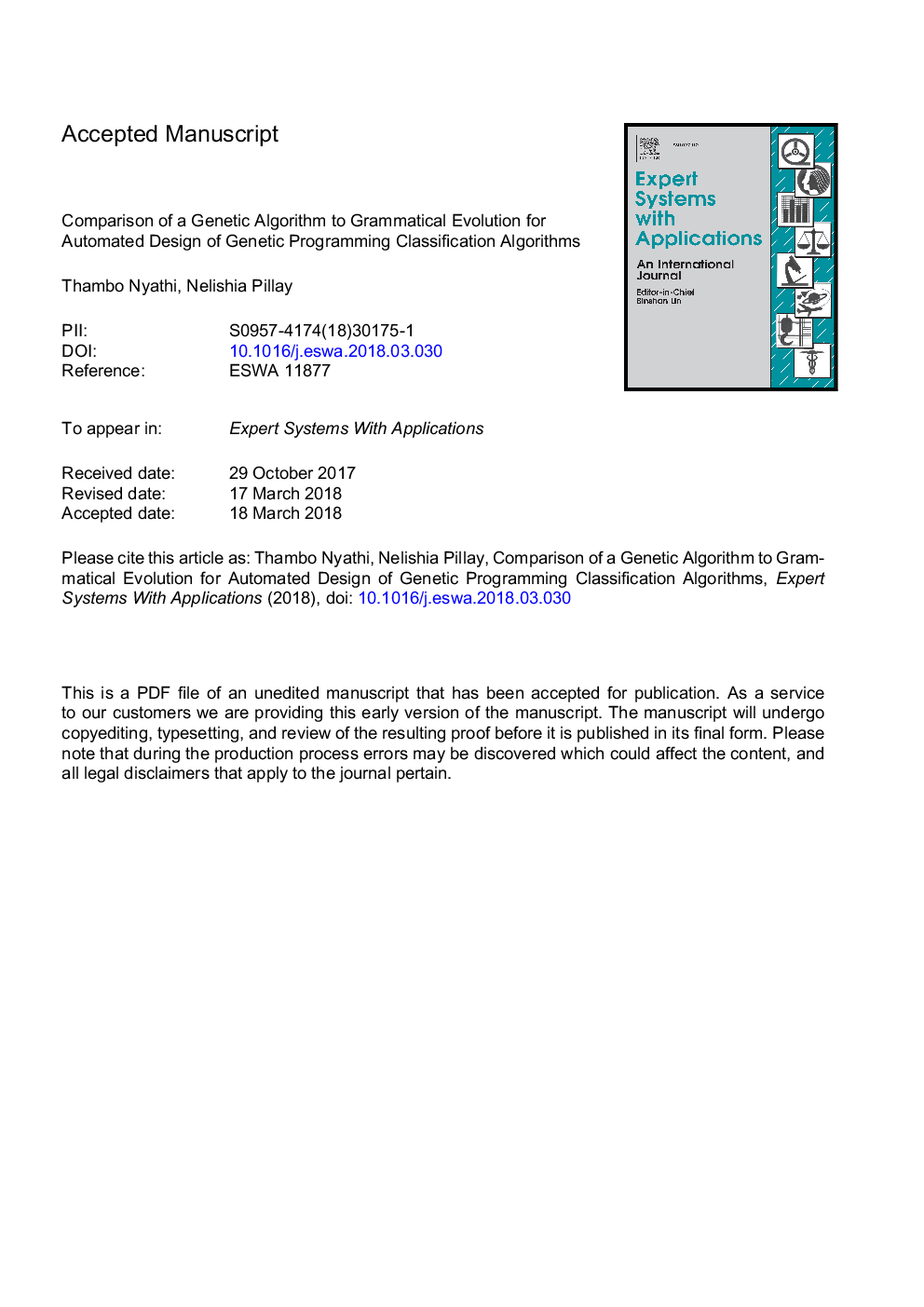| Article ID | Journal | Published Year | Pages | File Type |
|---|---|---|---|---|
| 6855008 | Expert Systems with Applications | 2018 | 71 Pages |
Abstract
Genetic Programming (GP) is gaining increased attention as an effective method for inducing classifiers for data classification. However, the manual design of a genetic programming classification algorithm is a non-trivial time consuming process. This research investigates the hypothesis that automating the design of a GP classification algorithm for data classification can still lead to the induction of effective classifiers and also reduce the design time. Two evolutionary algorithms, namely, a genetic algorithm (GA) and grammatical evolution (GE) are used to automate the design of GP classification algorithms. The classification performance of the automated designed GP classifiers i.e. GA designed GP classifiers and GE designed GP classifiers are compared to each other and to manually designed GP classifiers on real-world problems. Furthermore, a comparison of the design times of automated design and manual design is also carried out for the same set of problems. The automated designed classifiers were found to outperform manually designed classifiers across problem domains. Automated design time is also found to be less than manual design time. This study revealed that for the considered datasets GE performs better for binary classification while the GA does better for multiclass classification. Overall the results of the study are in support of the hypothesis.
Related Topics
Physical Sciences and Engineering
Computer Science
Artificial Intelligence
Authors
Thambo Nyathi, Nelishia Pillay,
